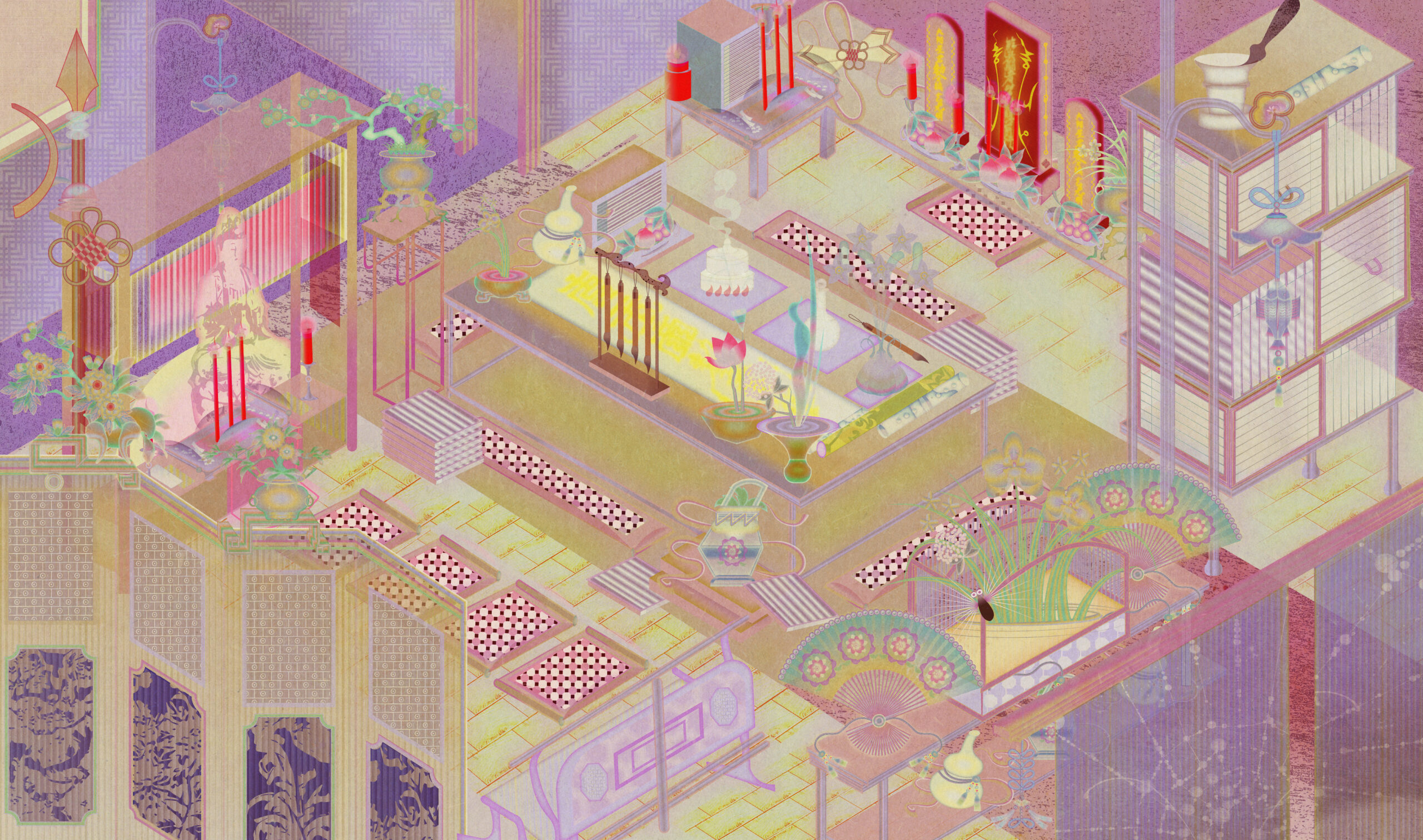SON IL KWON: ON HAPPINESS
| June 5, 2011 | Post In LEAP 8

Just as the “happiness index” was becoming a hot topic leading up to this year’s National People’s Congress, Son Il Kwon’s solo exhibition, “On Happiness,” opened at Three Shadows. His own understanding of happiness is projected through the eyes and faces of his subjects, the juxtaposition of portrait and landscape. The works on display largely come in sets of two: one photo is a portrait, the other a shot of the subject’s surroundings. A geologist by trade, Son Il Kwon spent last year traveling across China for his research. While on the road, he discovered great happiness in the people he met, largely bestowed upon them by their natural environments. Exploring Qinghai, Gansu, Yunnan, Guizhou, Guangxi, Fujian, Shanxi, Heilongjiang, and Jilin, his lens documented the people and landscapes of these underdeveloped regions.
The candid eyes captured in these photographs are the most moving sight in the exhibition. Eyes gaze into the camera, at the viewer, at us, a Chinese audience so prone to hide from happiness when faced with the pressures of daily life. Their eyes and smiles are both familiar and foreign; we seldom see our own people in this light. People lament the disappearance of the kind of China found in the works of Michelangelo Antonioni or Henri Cartier-Bresson; in the present era, that pure and optimistic temperament would appear anachronistic. Son Il Kwon’s China engenders a similar sense of defamiliarization, as we don’t find China’s busy metropolises in his work, and instead see rural China through the relative simplicity of his gaze.
In China today, happiness is considered in very practical terms, measured in abstract material and economic concerns like housing, taxes, health, food, and security. In stark contrast, Son Il Kwon’s principal means of understanding China and its people come from his immediate grasp of the environment; he measures by eye contact, by facial expression. Almost as a rule, the people in these pictures have bright eyes, radiant smiles, and beautiful land surrounding them. The tone of the images reflects the photographer’s state of mind. After all, he and his subjects belong to different domains. Happiness in China, for Son, is not tied to the current state of reality, but the landscape along the road. Traveling through and photographing the less-developed regions of China—so strikingly different from daily life in the big Korean metropolis—reveals alternative possibilities to the systems of urban life.

When documenting fellow citizens, Chinese photographers are more inclined to use photography to express their own concerns. Beyond photography itself, to produce any sort of documentary material bears a kind of responsibility. In contrast, foreign photographers are seldom entangled in these internal conflicts. Lacking intimate ties to China, foreigners can, for better or worse, more easily engage in the aesthetic contemplation of different ways of life, without the external baggage that comes with documenting one’s own people. Son Il Kwon is no exception. On the road taking photographs, having encounters with a different country and its people, he is searching for and making inquiries into his own conception of happiness. Here, portrait and landscape are condensed into what Son calls “mental images.” For an ordinary Chinese audience, this is a friendly reminder; it keeps us aware that these kinds of landscapes and people have all grown up on our own soil.
For Song Il Kwon, 2010 was a year of new encounters and discoveries. While on the road, he made the acquaintance of strangers, took their photographs, and then returned the photographs to them, providing his subjects with material memories of their happy encounters. Son undoubtedly took great pleasure in capturing the happiness of his subjects. Photography is an encounter, a moment of exchange, and these photos serve to memorialize those moments he shared with the people of a strange land. Duan Lingyu

